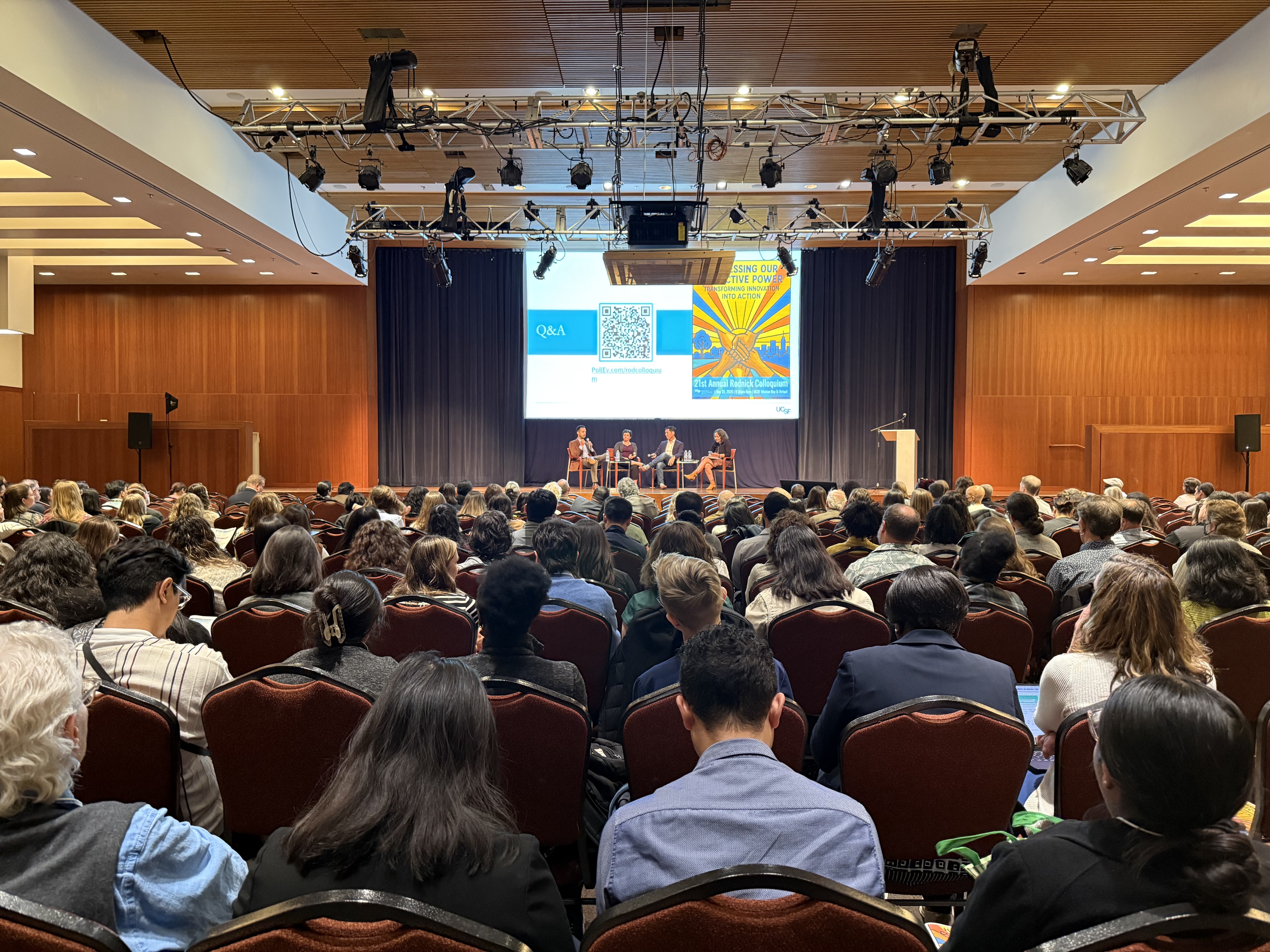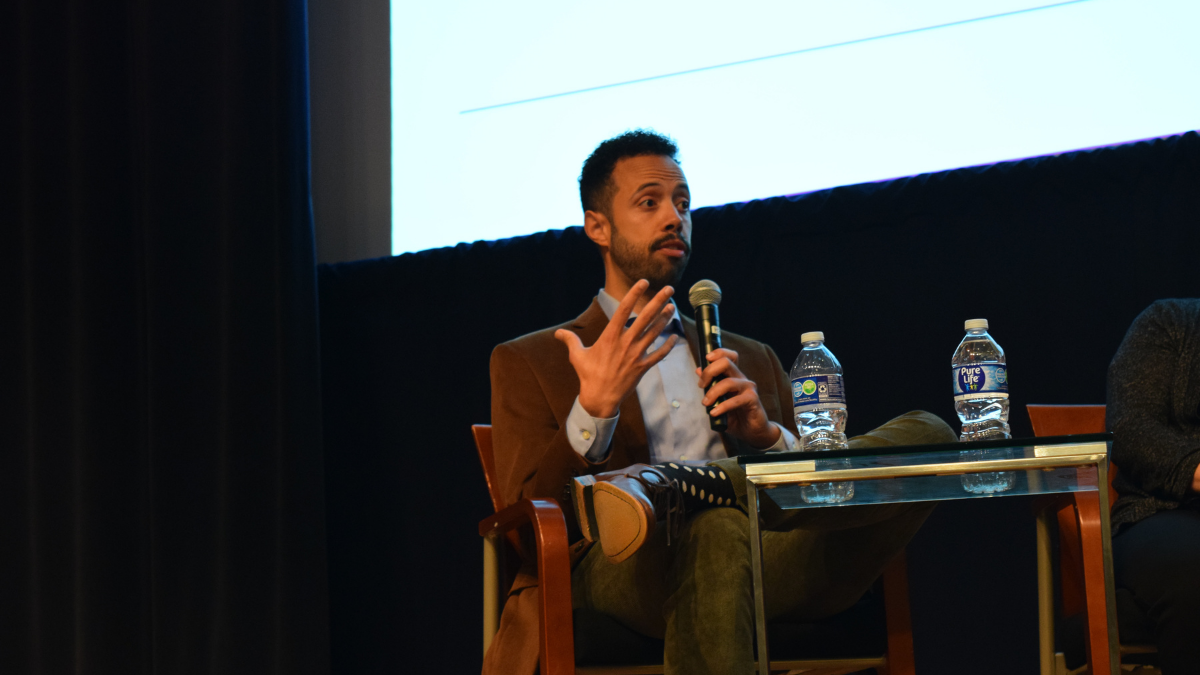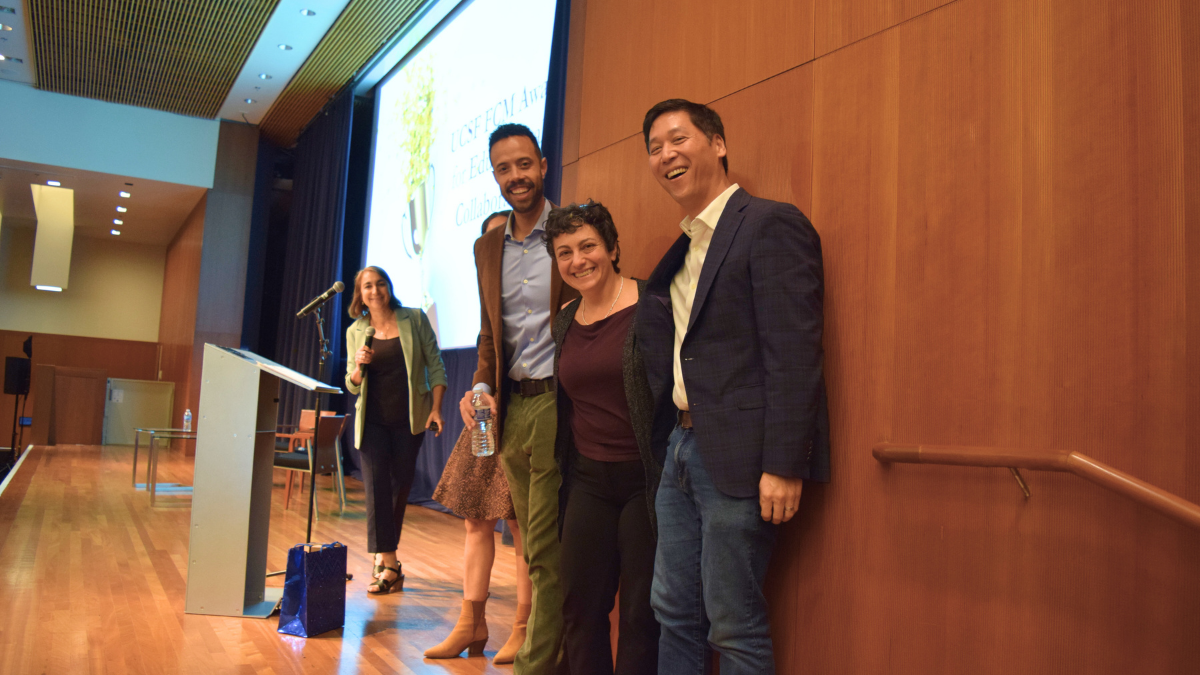
UCSF Family & Community Medicine’s (FCM)’s 21st Rodnick Colloquium opened with a bold and timely conversation: What role should artificial intelligence play in shaping the future of family medicine?
Moderated by FCM Chair Dr. Megan Mahoney, the opening plenary brought together three pioneering leaders in AI, equity, and primary care: Dr. Rachel Friedman (Kaiser Permanente Santa Rosa), Dr. Brent Sugimoto (Lifelong Medical Care), and Dr. Adrian Tomes (UCSF). Each panelist brought a unique perspective—rooted in practice, policy, and education—on how AI is already transforming the field and how family physicians can guide its evolution.
AI as a Tool for Joy, Equity, and Reconnection

Dr. Friedman shared her experience using AI-based scribing tools to reclaim time and presence in clinical care. “For the first time in my career, I can complete my notes before the end of the day,” she said. “It lets us be who we went into family medicine to be—and go home to be full people, too.” She emphasized AI’s potential to support learners with diverse needs and reimagine how we train physicians, shifting from “intellectual hoarding” to intellectual curiosity and creativity.
Dr. Sugimoto reflected on his journey from family physician to health tech entrepreneur, spurred by a moment with his young daughter mimicking his charting after hours at home. “That was a wake-up call,” he said. Now co-chairing the AAFP’s AI initiative, he sees AI as a vital tool to reduce burnout, streamline care, and elevate the foundational role of primary care. “But we need to stay engaged,” he cautioned. Channeling FCM Professor Emeritus Kevin Grumbach’s wise adage, he went on to say, “If we’re not at the table, we’re on the menu.”
Dr. Tomes, a clinical informaticist and health equity leader, brought a systems lens. He noted the risks of widening disparities if AI tools are developed without community-informed safeguards. He advocated for integrating AI literacy early into medical education so future physicians are prepared not only to use these tools but to critically assess their outputs.
“Learners and medical students, they are using AI tools, whether we, you know, want them to or not. And I think, as educators, a really important consideration is really guiding how to appropriately and effectively use those tools.”
Addressing Bias, Burden, and Mistrust

Audience questions sparked deeper reflection on several challenges: AI's environmental footprint, the risk of algorithmic bias, and concerns that efficiency gains may be weaponized to increase provider productivity rather than improve care.
The panelists agreed that AI must be developed and implemented with intention. Dr. Sugimoto pointed to the risk of displacing trust in the physician-patient relationship if AI becomes a barrier rather than a bridge. Dr. Friedman highlighted that while AI can generate notes, it can’t build trust or deliver bad news. “We still need the core skills of inquiry, empathy, and interpretation,” she said.
The conversation also touched on the business and policy landscape. With most AI development concentrated in specialties with lucrative billing codes, panelists called for advocacy to ensure primary care’s needs and values shape what’s built—and who it serves.
A Call for Family Medicine Leadership

The session closed with a call to action: Family physicians are uniquely equipped to lead the AI revolution—not just adapt to it. “We care about people more than profits. We are systems thinkers. We zoom in and zoom out. We build trust,” said Dr. Friedman. “Everything we bring to our patients is exactly what AI development needs right now.”
The panelists urged attendees to stay engaged, push for inclusive policies, and prepare the next generation of clinicians to not only use AI—but shape it.
As Dr. Mahoney summarized, “This is about reclaiming time, equity, and joy in family medicine. But only if we lead.”



